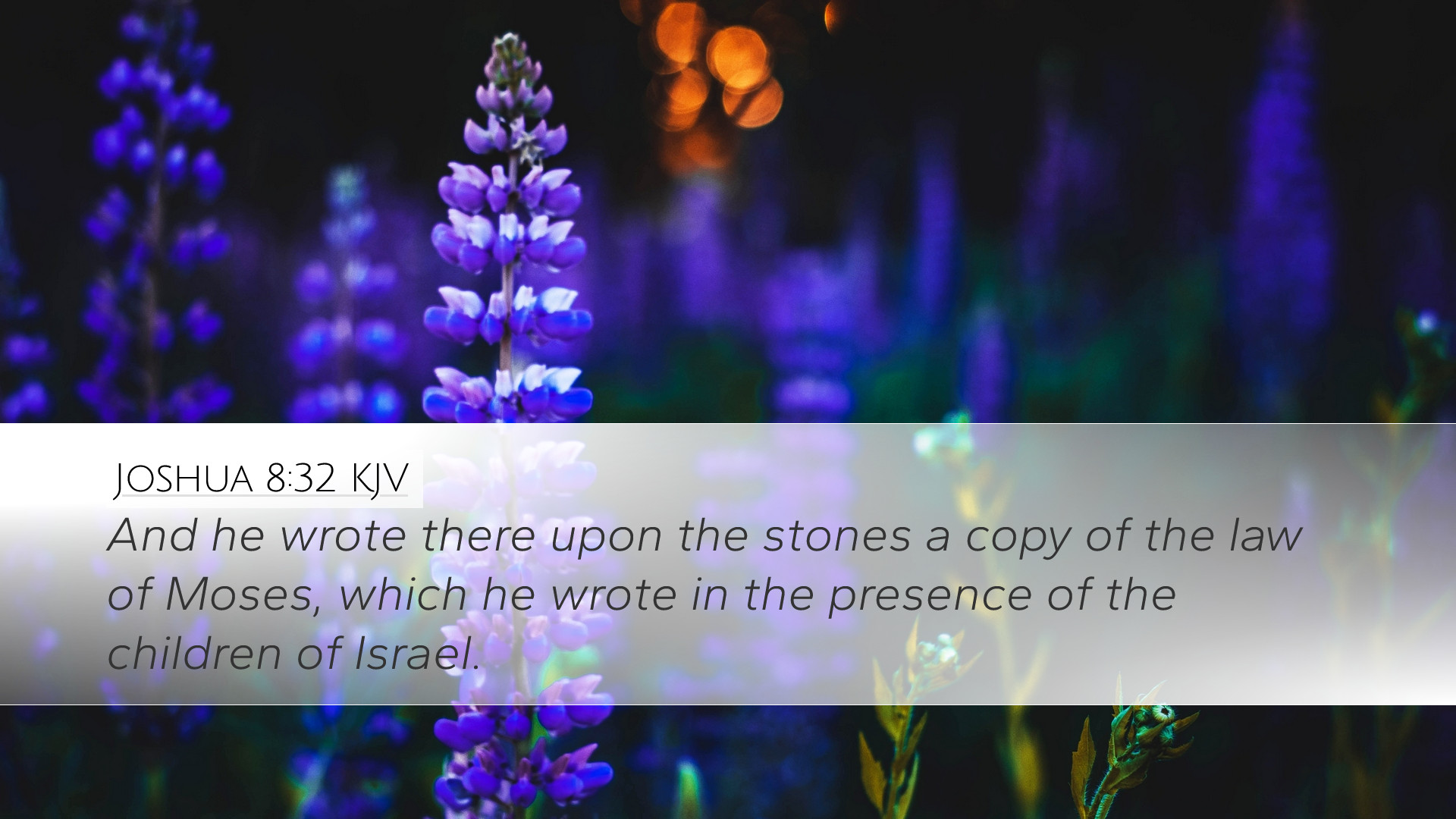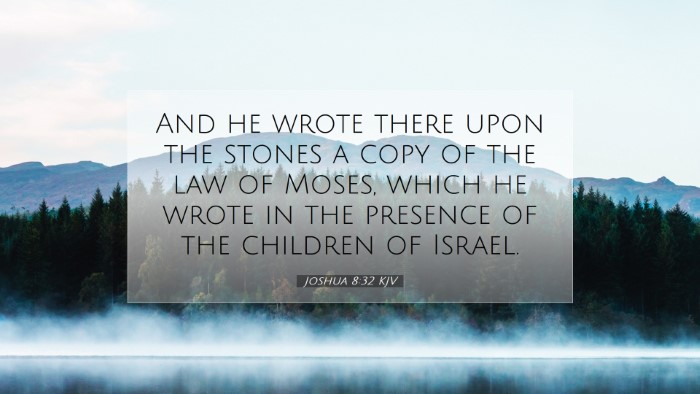Bible Commentary on Joshua 8:32
Verse Analysis: Joshua 8:32 states, “And he wrote there upon the stones a copy of the law of Moses, which he wrote in the presence of the children of Israel.” This verse plays a crucial role in understanding the covenant relationship between God and His people.
Contextual Background
After the defeat of Ai, Joshua returns with the Israelite people to renew their commitment to the Lord and reaffirm the covenant. The act of writing the law on stones highlights the importance of God's commandments and establishes their place in Israelite society.
Commentary Insights
Drawing from the commentaries of Matthew Henry, Albert Barnes, and Adam Clarke, we can delve deeper into various facets of this verse.
1. The Significance of Writing the Law
Matthew Henry emphasizes that engraving the law on stones serves as a permanent reminder of God's commandments, signifying their unchangeable nature. It was essential for the Israelites to have a tangible representation of God's will.
Albert Barnes points out that this act demonstrated the seriousness with which the Israelites should regard the law. By writing it publicly, it is placed before all, fostering accountability among the people.
Adam Clarke adds that this public declaration was not only for the benefit of the current generation but also served as a legacy for future generations, instilling a deep respect for God’s law in the hearts of the people.
2. The Role of Moses’ Law
The mention of “the law of Moses” is pivotal. Matthew Henry remarks on the authority of Moses as a prophet and mediator. The law he provided was divinely inspired and thus must be respected and followed diligently.
Albert Barnes highlights that this law contains not only moral instructions but also civil and ceremonial commands that shaped the nation's identity in relation to God and among neighboring peoples.
3. The Covenant Renewal Ceremony
The act of writing the law is part of a larger covenant renewal ceremony. Matthew Henry notes that the physical act of inscribing the law on stones was a symbolic and solemn reaffirmation of the Israelites' commitment to God.
Adam Clarke remarks that such ceremonies were influential in solidifying the nation's spiritual foundation, allowing the people to recall the covenant promises and responsibilities entrusted to them.
Theological Implications
- The Immutable Nature of God's Law: The engraving of the law signifies its permanence and authority over the lives of the Israelites.
- Public Witness: Having the law publicly displayed emphasizes the collective responsibility of the community to uphold God’s commandments.
- Legacy of Faith: The public nature of this act fosters an enduring faith where future generations are educated on their heritage and obligations to God.
Practical Applications for Today
This passage has vital implications for contemporary believers:
- Value of Scripture: Just as the Israelites were reminded of the law, modern believers are called to recognize the scriptures as foundational to their lives.
- Community Accountability: There is a need for modern congregations to create environments where individuals hold each other accountable to the standards set by God’s Word.
- Teaching Future Generations: Believers are tasked with teaching the younger generations about God’s laws, ensuring that the legacy of faith continues in our families and communities.
Conclusion
Joshua 8:32 encapsulates a significant moment of commitment for the nation of Israel. Insights from respected commentators like Matthew Henry, Albert Barnes, and Adam Clarke reveal the depth of this act and its importance in theological context. For pastors, students, and scholars, the lessons derived from this verse remind us of the unchanging nature of God's commands, the significance of public witness, and the legacy we pass down in faith. As we reflect on this scripture, may we be inspired to uphold, cherish, and teach the law of God in all aspects of our lives.


